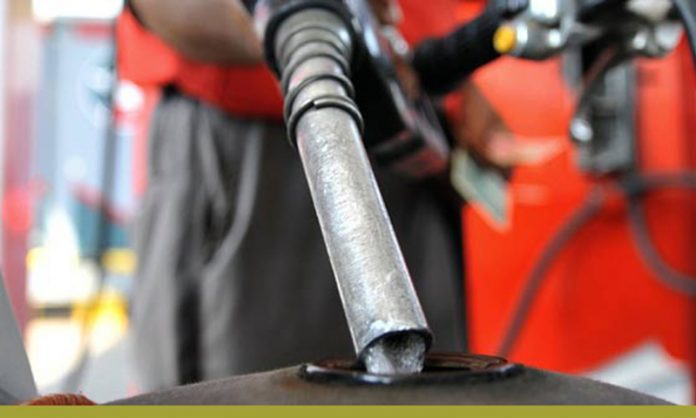Fuel Taxes in Pakistan: Govt levies Rs142/liter on fuel (Rs82 tax + Rs60 levy). Rs475B collected in 6 months. Recent decision: maintain petrol, reduce diesel. Ogra’s review considered.
In Pakistan, the government levies significant taxes on fuel, aiming to balance fiscal needs while ensuring stability in the energy sector. Understanding the intricacies of these taxes and their impact is crucial for consumers and policymakers alike.
The Government’s Tax Structure
The government imposes a tax of Rs 82 per liter on both petrol and diesel, in addition to an extra Rs 60 per liter levy. This brings the total tax burden to Rs 142 per liter on fuel. Such taxation plays a pivotal role in revenue generation, contributing to the country’s economic development and funding essential public services.
Revenue Collection and Projections
The taxation on fuel translates into substantial revenue for the government. In the first six months alone, consumers have contributed Rs 475 billion through these taxes. With an annual target of Rs 920 to 970 billion, the government relies on fuel taxes as a significant revenue stream to meet its financial obligations.
Recent Government Decision
In a recent announcement, the government decided to maintain petrol price while reducing the price of high-speed diesel. Effective from March 16th, petrol will remain priced at Rs 279.75 per liter, while high-speed diesel will see a reduction of Rs 1.77, bringing its price to Rs 285.56 per liter until March 31st.
Rationale Behind the Decision
The decision to maintain petrol prices and reduce diesel prices stems from a careful review conducted by the Oil and Gas Regulatory Authority (Ogra). While Ogra suggested a potential increase of Rs 1 for petrol, it recommended a decrease of Rs 1 for diesel. The government opted to follow Ogra’s advice, balancing the interests of consumers and the stability of the energy market.
Continued Pricing Adjustments
This recent decision follows previous adjustments in fuel prices. In the first half of March, petrol prices saw an increase of Rs 5.75, while high-speed diesel prices remained unchanged at Rs 287.33 per liter. These adjustments reflect the government’s efforts to manage the impact of global oil price fluctuations on domestic consumers.
The Impact on Consumers
For consumers, fluctuations in fuel prices directly affect their daily expenses and overall cost of living. While the government aims to strike a balance between revenue generation and consumer welfare, the burden of fuel taxes remains a concern for many.
Building Trust through Transparency
Transparency in government policies regarding fuel taxation is essential for building trust among citizens. Clear communication and rationale behind pricing decisions help foster understanding and cooperation between the government and the public.
FAQs on Fuel Taxes
Why does the government levy taxes on fuel?
Fuel taxes are crucial for revenue generation and funding public services.
How are fuel taxes in Pakistan structured?
The government imposes a tax of Rs 82 per liter on petrol and diesel, with an additional Rs 60 per liter levy.
What is the impact of fuel taxes on consumers?
Fuel taxes directly affect the cost of living for consumers, influencing transportation and commodity prices.
How does the government determine fuel prices?
Fuel prices are determined based on global oil prices, taxation policies, and regulatory recommendations.
Are there any exemptions or subsidies on fuel taxes?
The government may provide subsidies or exemptions on fuel taxes for specific sectors or regions.
What factors influence changes in fuel prices?
Global oil market dynamics, currency exchange rates, and government policies are key factors influencing fuel price fluctuations.
How does fuel taxation contribute to the economy?
Revenue generated from fuel taxes contributes to infrastructure development, public services, and fiscal stability.
Are there any alternatives to fuel taxation for revenue generation?
Governments may explore alternative revenue sources, such as carbon pricing or renewable energy taxes, to reduce reliance on fossil fuel taxes.
What measures can consumers take to mitigate the impact of fuel taxes?
Consumers can adopt fuel-efficient vehicles, carpooling, and public transportation to reduce fuel consumption and expenses.
How can citizens engage with policymakers regarding fuel taxation policies?
Citizens can participate in public consultations, advocacy campaigns, and engage with elected representatives to voice their concerns and suggestions regarding fuel taxation policies.
Conclusion
Fuel taxes play a significant role in Pakistan’s economic landscape, providing essential revenue for the government while impacting consumers’ daily lives. By understanding the rationale behind Petrol pricing decisions and fostering transparent communication, the government can build trust and cooperation with citizens, ensuring a balanced approach to fuel taxation and pricing policies.
